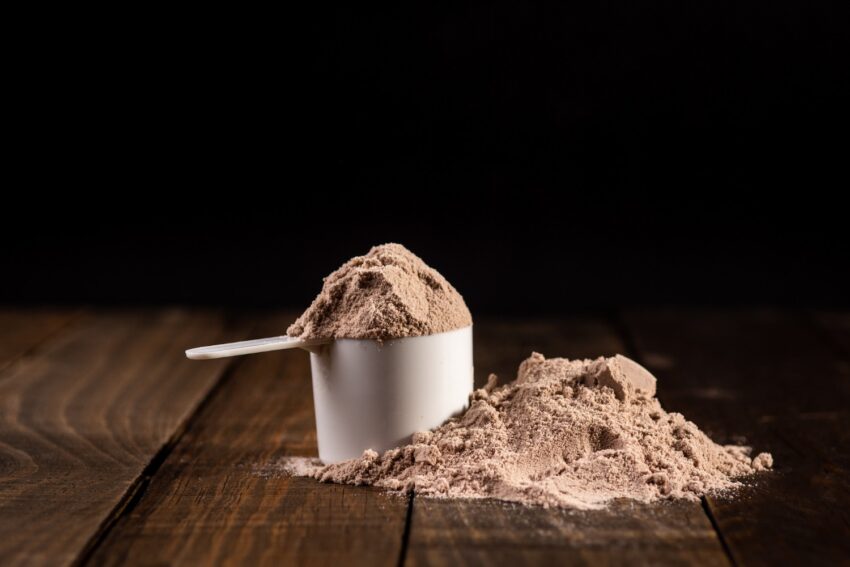Protein is essential for every single person, every single day. Protein becomes even more important the more active we are, and while most people know that it’s important, often we don’t understand why.
As we approach/mark International Protein Day on February 27, let’s take a look at its vital role in our health and athletic performance.
What is Protein?
Proteins are made up of amino acids, both of which are the main building blocks of our muscles, bones, skin, tissues and organs.
When we consume protein, our body breaks it down into individual amino acids and then uses them to create new proteins throughout the body.
It’s essential to consume an adequate amount of protein; otherwise, the body will have to break down muscle to obtain the amino acids it needs to function. Inadequate protein intake can lead to muscle loss, fatigue, and weakened immune function.
Did You Know?
- Protein makes up approximately 15% of a person’s body weight.
- The Recommended Dietary Allowance (RDA) for protein is 0.8 grams per kilogram of body weight per day, but athletes and highly active individuals may need up to 1.6-2.2 grams per kilogram to support muscle repair and growth.
The Three Main Benefits of Protein
Benefit #1 – Protein Helps You Feel Full for Longer
One of the main issues for people trying to lose weight and for athletes burning a significant number of calories is that they’re constantly hungry.
This is where consuming protein can be especially beneficial because it helps you feel full for a longer period of time, compared to carbohydrates or fat.
This is due to the effect of protein on ghrelin (the hunger hormone) and peptide YY, a hormone that promotes satiety.
Research shows that consuming 25-30% of daily calories from protein can help manage weight by reducing cravings and the desire for late-night snacking.
Pro Tip: To cut back on unhealthy snacks, look for options that are high in protein, such as Greek yogurt, hard-boiled eggs, or a handful of almonds.
Benefit #2 – Protein Supports Your Metabolism
Protein has a higher thermic effect of food (TEF) compared to carbohydrates and fats, meaning it requires more energy to digest and metabolize. This can slightly increase your metabolism and help you burn calories more efficiently.
Muscle tissue burns more calories at rest than fat tissue, making it vital for anyone trying to manage their weight or improve body composition.
Protein, when consumed throughout the day, can also help you maintain your muscle mass; having adequate muscle mass is also essential in maintaining your metabolism.
A study in The Journal of Nutrition and Metabolism found that individuals consuming higher protein diets experienced a boost in resting energy expenditure (REE). For every pound of muscle you gain, your body burns an additional 6-10 calories per day at rest.
Pro Tip: Incorporate protein-rich foods like chicken, fish, or tofu into every meal to support metabolism throughout the day.
Benefit #3 – Protein Helps Your Muscle Recovery and Growth
High-quality proteins contain all of the essential amino acids and are rich in branched-chain amino acids (BCAAs).
Leucine, one of these BCAAs, plays a major role in promoting muscle growth and recovery after resistance and endurance exercise.
These high-quality proteins exist in animal-based protein foods such as lean poultry, beef, fish, dairy, egg products, and whole eggs.
If you’re vegan or like an occasional vegan diet, there are plenty of plant-based proteins that are just as effective in promoting muscle growth and recovery like soy, pea, pumpkin seed, quinoa, and flax seed.
A 2017 review in The Journal of the International Society of Sports Nutrition highlighted that consuming 20-40 grams of protein post-exercise optimizes muscle recovery and growth. Studies have shown that a combination of resistance training and adequate protein intake can increase muscle mass by 10-20% over several months.
“Protein is the MVP of muscle recovery. Without it, the repair process after workouts stalls, delaying your progress,” says Dr. Brad Schoenfeld, a leading expert in muscle hypertrophy.
How Much Protein Should You Consume and How Often?
Timing of protein intake is especially important for athletes or anyone trying to build muscle. Exercise stresses the muscles, and consuming protein post-workout helps repair and rebuild them.
General Guidelines:
- Daily Intake: Aim for 1.2 – 2.2 grams of protein per kilogram of body weight, depending on your activity level.
- Post-Workout: Consume 20 – 40 grams of protein within 30 minutes after exercise.
Protein-Rich Snacks:
- A good quality protein shake, like the Herbalife V Plant-Based Protein Shake, can meet your nutritional needs while on the go. It contains organic pea, pumpkin seed, and chia seed proteins—complementary plant-based sources that satisfy hunger and support muscle recovery.
If you’re interested in finding out more about protein from Herbalife’s experts, check out the Wellness Resources on Herbalife.com.
Did You Know? A single large egg contains about 6 grams of protein, while a cup of cooked lentils has about 18 grams.
Conclusion
Protein is the cornerstone of a healthy diet, playing a pivotal role in hunger management, metabolism support, and muscle recovery. Whether you’re an athlete, trying to lose weight, or simply aiming to maintain a healthy lifestyle, ensuring you consume enough high-quality protein is essential.
Mark International Protein Day by incorporating more protein into your meals and snacks—your body will thank you for it! For expert tips and resources, visit Herbalife.com to explore protein benefits, protein-rich recipes, and guidance from nutrition experts.
Image Credit: Freepik

Dr. Luigi Gratton is the VP of Health and Wellness at Herbalife, overseeing education for Independent Distributors. He chairs the Herbalife Nutrition Advisory Board and holds a medical degree from the Icahn School of Medicine. Dr. Gratton completed a fellowship at UCLA and is a Diplomate in family practice and nutrition.




































